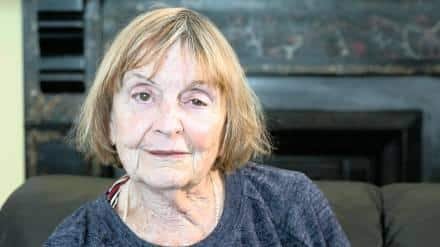
SATURDAY marked Holocaust Day, the anniversary of the liberation of Auschwitz, the largest of the Nazi World War II concentration and death camps, by the Red Army on January 27, 1945.
In the decades since, numerous stories have emerged of heroes who hid or helped Jews escape certain death in the camps. Among them was a group of Turkish diplomats stationed in countries across Europe who used their country’s neutral status to save the lives of thousands of Jews of Turkish descent.
During his time in South Africa, Turkey’s former ambassador, Kaan Esener, hosted a screening of an international documentary film, The Turkish Passport, which tells the story of around 20 Turkish diplomats who issued Jews in Nazi- occupied Europe with Turkish passports so that they would have a degree of protection during the round-up of Jews, and in extreme cases, could be pulled off trains headed for the death camps.
Now local film-maker, Johnathan Andrews, has followed this up with a documentary, The Story of Holocaust Survivor Lina Amato, made in association with the Turkish Ministry of Foreign Affairs and the Turkish Embassy in Pretoria.
 The story, told by Amato, now 81, with background from Richard Freedman, director of the SA Holocaust Foundation, and comments by the Turkish ambassador to South Africa, Elif Çomolu Ülgen, honours Selahattin Ülkümen, Turkey’s consul on Greece’s Rhodes Island during the war.
The story, told by Amato, now 81, with background from Richard Freedman, director of the SA Holocaust Foundation, and comments by the Turkish ambassador to South Africa, Elif Çomolu Ülgen, honours Selahattin Ülkümen, Turkey’s consul on Greece’s Rhodes Island during the war.
Ülkümen, a Muslim is credited with saving 43 Jews living on the island, including the Amato family, by issuing them with Turkish passports. Another 1783 Jews living on the island – including Amato’s childhood friends – were taken to Athens and then on to the last rail transport of the war, destined for Auschwitz.
In the film, Amato clutches her red Turkish passport – a symbol of her freedom – and says how she regrets she never had the chance to meet Ülkümen to thank him.
She also honours Italian residents on Rhodes, Girolamo and Bianca Sotgiu, family friends of the Amatos who took Lina, then aged eight, into their care when Jewish citizens were ordered by the Gestapo to report to the local barracks.
She tells how they taught her Catholic ways, including reciting Latin prayers, to protect her.
Lina’s parents had Italian passports, but her grandmother was Turkish. She describes how Bianca Sotgiu came up with the idea to approach Ülkümen, and how he agreed that he would save as many Jews as he could under the pretext of their being Turkish citizens.
It was to be a torment for her father that they had to leave behind friends and his workers to deportation and certain death, and that the Germans attacked Ülkümen’s home in retribution for his efforts, leading to his wife’s death.
After the war, Lina and her parents left Rhodes for Rhodesia (now Zimbabwe) and later moved to South Africa.
Andrews hopes his film will bring home to people that “what we had in history, in some respects, still prevails today”, evident in “tensions in many areas of society all over the world”.
To buy a copy, go to https://unitedworldnation.org/product/the-story-of-lina-amato/ or https://goo.gl/gDoXCV
 eSefarad Noticias del Mundo Sefaradi
eSefarad Noticias del Mundo Sefaradi

